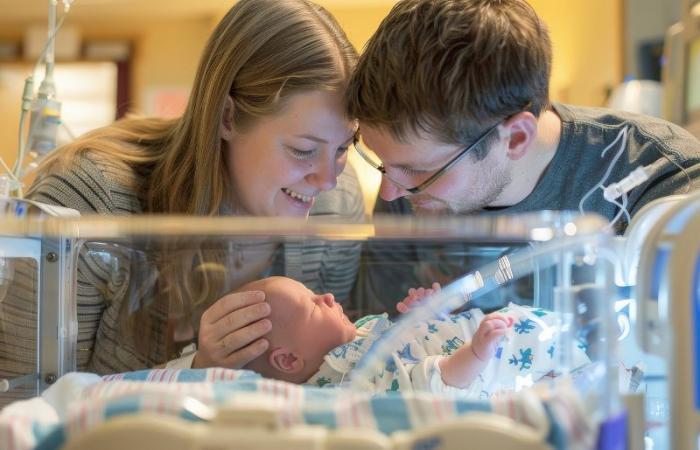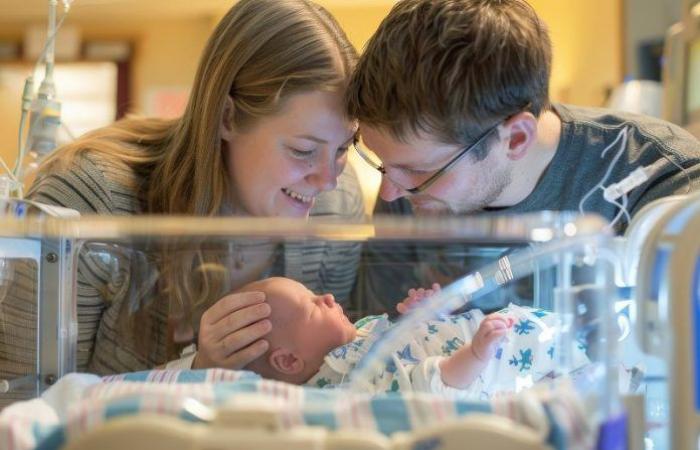A baby is considered premature if born before 37 weeks of pregnancy, or before 8 and a half months. The causes of prematurity are diverse: infections, problems with the placenta, hypertension in the mother, gestational diabetes, etc. About 15% of premature babies are “grands” premature, and 5% are “very large” premature, according to Inserm.
Premature baby: what are the risks for his health?
A premature baby is born before his development is complete. So this means that its organs, such as the lungs, heart and brain, are still forming and, therefore, more fragile. His immune system is also less developed, which inevitably makes him more susceptible to infections and other complications.
Due to their vulnerability, premature babies can develop various disorders during childhood, such as:
When born, this newborn often receives care in neonatology, a unit specializing in the care of premature births. Care, which can last several weeks, and which aims to ensure its survival and development.
Lyon Sud: innovative home care
Since June 2024, the Lyon Sud hospital has been testing a mobile neonatology unit, a device never before seen in France. This program allows certain premature babies to leave the hospital earlier while continuing to receive the care necessary for their development. The objective? Reduce prolonged stays in neonatology, a source of stress for parents and which can harm the emotional bond with the child.
These hospital stays can, in fact, last weeks or even months, depending on the degree of prematurity of the baby. For very premature babies, hospitalization can even last up to three months, which can harm their neurological development. Thanks to the UMN, babies could benefit from medical monitoring at home. This device helps break the cycle of prolonged hospitalization, and offers a more familiar and calming environment for the family.
“Our objective is to offer care that is as close as possible to a traditional care pathway for a healthy newborn. The objective being that parents do not perceive their experience as a medicalized journey”explains Dr Franck Plaisant, head of the neonatology and neonatal intensive care department at Lyon Sud hospital.
Mobile home unit: how does it work?
The mobile unit is made up of a team of nurses specialized in neonatology and a coordinating pediatric nurse. These professionals go to families’ homes once or twice a day, 7 days a week, to ensure medical monitoring.
Families, for their part, receive all the necessary equipment for home monitoring:
- Des scopes : to monitor vital functions.
- Gastric tubes : for food if necessary.
- Bilirubinometers : to measure bilirubin and detect jaundice.
This new solution should also make breastfeeding easier, a very crucial element for the healthy development of the infant.
“It is a new way of thinking about neonatology, which has already proven itself in the Nordic countries, particularly in Sweden. Initial feedback suggests that UMNs represent the future of neonatology”reassures Dr Roxana Diehl, deputy head of department and medical manager of the UMN.
NAMELY
As part of this experimental project, regular appointments at the Lyon Sud hospital with a referring doctor are planned, and a telephone line remains available to answer parents’ questions and concerns.







